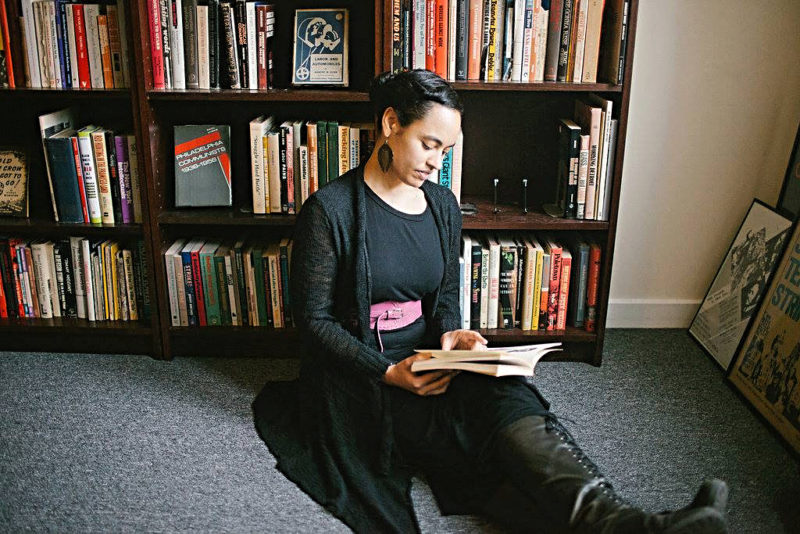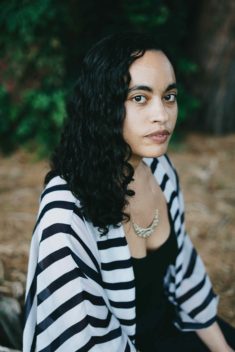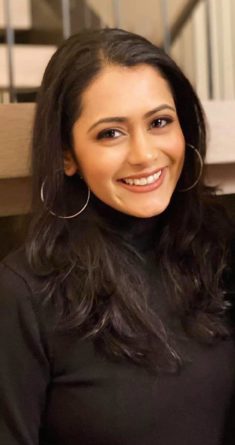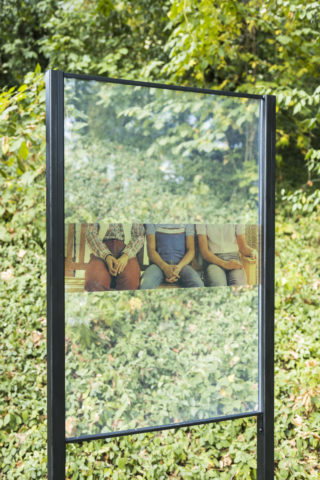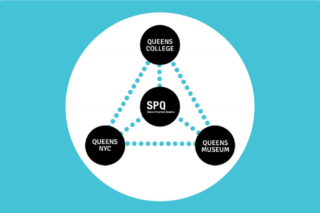Queenie Sukhadia
The Andrew W. Mellon Seminar on Public Engagement and Collaborative Research is an initiative hosted by the Center for the Humanities that allows creative practitioners, activists and scholars to cohere and work together to undertake research, teaching and other public humanities projects driven by social justice goals.
As I have mentioned in previous essays, I have always been eager to speak with other public humanists (whether or not they explicitly identify as such) about the public humanities in general, and also more specifically about the spectrum of work that is practiced under this rubric. This seminar offered the perfect setting to virtually gather with these practitioners and speak to them about how they understand the work of the public humanities. They share with us, in this interview, their particular understandings of the public humanities, their framings of the publics they are responsible to, what they see the role of a public university being in facilitating this work and how one can reach the ‘public’ through one’s work.
Each week over the next few months, we will be posting a new interview with a member of the Mellon Seminar cohort.
QS: Can you describe your project briefly? Who are your publics? How would you characterize the relationship your project cultivates with these publics? Why did you decide to make your work public-facing?
Chloe Bass: My project, Here and Not There, is, at its core, a project that uses tools of visual language and narrative-building to understand and interpret urban behavior and public policy. I want to use family photographs both collected from unknown/unofficial archives, and supplied by project participants, to unpack the ways in which living in a city together is like living in a family––for better and for worse. I believe that these familial feelings have produced a layer of emotional complexity that has effects even at the formal policy or legal level––even though we think of the law as divorced from feelings. I want to use this project, through a series of fine and socially engaged arts practices, to start making connections apparent between the two.
QS: If you had to select one verb to articulate the work/responsibilities of the public humanities, what would it be?
CB: This is a hard question, but I'm settling on "to examine." Examine has two main meanings: to inspect or investigate thoroughly, and to test knowledge or proficiency. I think that the public humanities can do both: provide thorough investigations, and test our proficiency as publics in our forms of seeing or engagement.
QS: What does a ‘public university’ mean to you? What are its responsibilities?
CB: I think of a public university in the way a person might think of a public park or a public library: a space that is provided through public commitment both at the individual and governmental levels because we believe people need and will use it. Of course, very much like public parks or public libraries, we say that public universities (and good public schooling at all levels) are available to everyone, but really they're available to different people in different ways, and aren't equally fair or accessible. I believe it’s the responsibility of the public university to allow at least some measures and forms of accessibility to any member of the public. Perhaps this doesn't look like universal free college (or maybe it does!), but what else is possible? We have tons of resources: spatial (when it's not a pandemic, or even, to some extent, when it is); tools-based; knowledge-based; etc. How can these things be utilized towards a larger good rather than controlled through scarcity mentalities and ongoing austerity?
QS: What kinds of institutional supports are needed to facilitate the university’s engagement with the public?
CB: I do engage with the public at CUNY: my students are the public. They are New Yorkers, whether born and raised, or recently relocated. (As we know, New York City has always been heavily made up of both of these groups of people!) But I think to engage with larger publics, at a scale beyond just my classroom(s), requires a true commitment to understanding a diversity of practices and outcomes as meaningful research. Not everything needs to appear in an academic journal, behind a paywall, written in formal language, in order to convey deep meaning, or reveal the product of thorough learning. I mean this in terms of expectations for faculty, but also for students: how can we demonstrate the value of different forms of learning within our coursework, our syllabi, and our institutional culture? It's ironic that another thing that really helps this work happen is course release (time away from the classroom). But of course that's true as well. I wish there were a way to lighten other formal expectations that an increasingly neoliberal university system unfortunately places on all of its members, but I don't know what the official format of that would be. A get-out-of-capitalism free pass?
QS: How do we incentivize publics to engage with the work we do in the university? How do we generate public interest in our work? Is this a worthy goal?
CB: This might be a surprising opinion to some within the university, but I actually don't believe in research that's only accessible to other researchers. I think that extremely complex ideas can, and should, be expressed to all kinds of audiences, using all kinds of language (literal languages, as in not-just-English, as well as levels of formality within language, or even visual, sonic, or other creative languages in addition to the written word). The best way to generate public interest in high level research is to produce results from our research that have applications in daily life: practical, emotional, or otherwise. I am deeply committed both to the rigor of my research, and the accessibility of its outcomes, and I don't believe that these things are at odds with each other.
